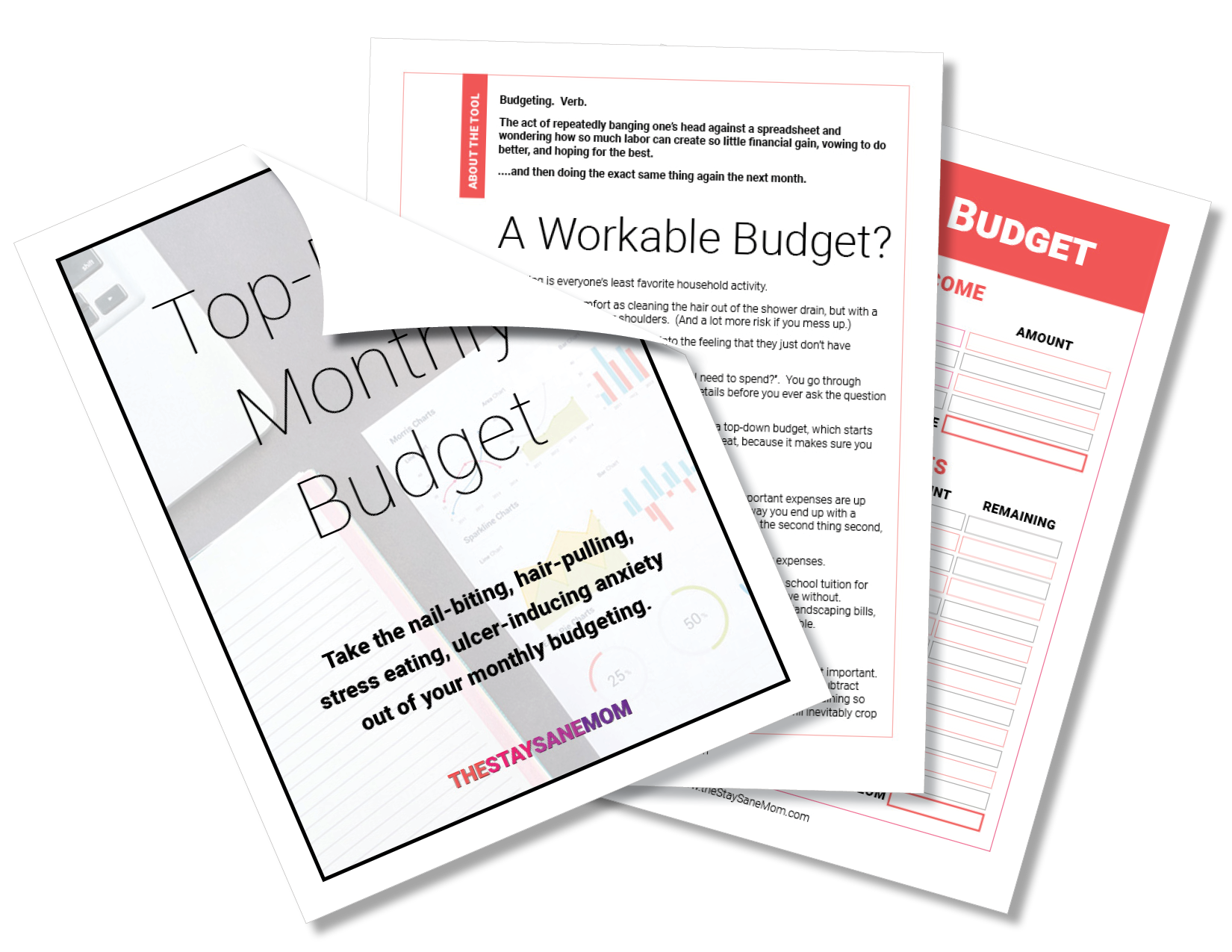One Simple Trick to Hit Your Budget Every Month

One Simple Trick to Hit Your Budget Every Month
This one change instantly made us hit our budget every month without changing our spending habits.
Written by Liz Bayardelle, PhD | See Comments | Updated 10/09/2018
Want to cut to the chase?
Failproof Monthly Budget

One Simple Trick to Hit Your Budget Every Month
This post contains some affiliate links for your convenience. Click here to read my full disclosure policy.
It's probably really pretty. Maybe you battled the malevolent computer gods to learn the ins and outs of Quicken, maybe you took the insane amount of time it takes to input all of your account information into one of the delightful little personal finance apps (more on that later), maybe it's on a drool-inducing spreadsheet.
You finally did the hard part! Right?
Where Good Budgets Go to Die
Then you miss month two, but it was Christmas and that's always going to be a horrible time for budgeting. Your budget isn't bad, you'll get them next month.
Then you miss month three. But again, it was totally understandable! Two of your kids have January birthdays. Just a one-off. You'll be fine.
The next month one fo your kids gets braces, then the dog has an allergic reaction to your newly-planted bushes and incurs ridiculous vet bills, then you have to pay travel expenses for your annual spring break, then it's time to book summer camps, and so on, and so on...
The Disgusting Abundance of One-Off Expenses
I categorized our transactions on PocketSmith (my personal finance app of choice and the best thing that ever happened to my inner finance nerd) every day on the app while I was waiting in the carpool line. We had monthly budget meetings and raked ourselves over the coals for minor budget infractions. We followed Dave Ramsey's envelope system vigilantly.
What was going wrong? It's not like we could not get our child braces when they needed them. And you can't anticipate things like sudden vet bills.
A Really Bad Explanation of Some Basic Real Estate Stuff
When you're buying a house, you have a period of escrow where the money you're spending on the house goes into a separate account, held by a middleman, not the buyer or the seller. It hangs out there until you finish all the paperwork, when it finally gets transferred to the seller.
(My husband is actually in real estate and could explain it much better. As could Google, if you're curious, but the previous hack job was good enough for our purposes.)
What does this have to do with our repeatedly-failed budget? Everything.
The Solution (F*&%ing Finally)
One day, in desperation and probably the dead of night, I decided to try something new: we were going to make an escrow(ish) account to take care of our yearly expenses.
I went online at Chase* (where we already have our checking account and several linked savings accounts) and opened yet another savings account. I named this savings account "Yearly Expenses" and I love it the most of all. (Yes, that was a Wizard of Oz reference in a financial post. You're welcome.)
The next step (which was probably taken at 2am and next to a snoring husband, mind you) was to make a list of all of these blasted "one-off" expenses that kept derailing our beautiful budget.
Keep in mind that this was done in a middle-of-the-night fit of rage typing, so my list was very detailed. I put down everything from holiday travels to birthday gifts, summer camp tuition to property taxes. I included estimated yearly totals for things we couldn't know exactly, like medical or vet expenses, back to school shopping, and other things that would surely happen but we didn't know just how much they'd be.
I figured out how much each of these little buggers was going to cost us for the whole year. Then I added them all up and divided that number by twelve months.
The result made my head spin a little. I almost couldn't fathom having to take that much out of our collective paychecks each month, but the math was right and the numbers were all based on what we had actually spent in previous years. So, like the stubborn swot I am, I decided to give it a try.
The Miracle that Followed
The next month, another one of those annoying, one-off expenses came along. (I think we had to book our annual trip across the country to see my husband's family for Thanksgiving.) I was just about to mourn yet another month with a blown budget when I looked at my spreadsheet and saw that we had already saved the money for it. What?
We booked the tickets, transferred the exact amount we spent out of our "Yearly Expenses" account, and made our budget with a few hundred dollars to spare. This was completely unheard-of back then, as we usually missed by a much larger margin.
This couldn't have worked, could it?
...And Again
As it turns out, we were spending quite responsibly after all!
The Takeaway
I also added a "miscellaneous" category with an extra $500 that we could pull out for expenses we didn't forsee or if (for some reason) we really needed it one month. This little guy has saved our neck more than once, I'll tell you.
Overall, we are now at a point where the system works! We only miss our budget on months where we really do spend irresponsibly. This still happens (we are human), but it is far rarer than it had seemed back when we were missing by a large margin every single month.
My Gift to You (and Your Budget)
I've also written up a step by step instructions sheet so even those of you who aren't technologically inclined can use it with relative ease.
Take a look, give it a try, and let me know how it works! I'd love to hear how this system (that saved our financial necks) works for other families!
Start Your Next Step
Failproof Monthly Budget

Get Sanity, Delivered to Your Inbox.
Care to Share?





About the Author

Liz Bayardelle, PhD
Founder | Contributor
Liz (or Dr. Mommy, as her toddler started calling her after learning what a PhD was) is the happily sleep-deprived mom of a toddler (and professional raccoon noise impersonator), a sparkle-clad kidnado, a teenage stepdaughter, 200 cumulative pounds of dog, and herd of dustbunnies (if daily vacuuming doesn't occur). During nights and naptimes, she uses her PhD in business psychology as an author, speaker, and consultant. She also serves as an executive and principal for three companies, two of which she co-founded with her very patient (and equally exhausted) husband.





-Budget.jpg)